
Vote counting in Madagascar's presidential election was roiled by accusations of fraud on Thursday as the two candidates both claimed victory in a stand-off that has raised fears of instability on the Indian Ocean island.
Andry Rajoelina and Marc Ravalomanana, both former presidents and long-time rivals, are locked in a duel for power after they came a close first and second in the preliminary election in November.
By Thursday evening, results from Wednesday's run-off election were declared for 19 percent of polling stations and 2.4 million votes -- out of 10 million registered voters -- with Rajoelina in the lead with 54 percent and Ravalomanana on 45 percent.
Turnout was about 47 percent, but Rajoelina's large early lead was still seen as inconclusive.
"I have noticed massive fraud. There are electoral cards that are fake," Ravalomanana told AFP on Thursday at his campaign headquarters in the capital Antananarivo.
"If the results follow the rules and take into account our complaints then yes, I agree (with the results), but if they don't follow the democratic process, no."
His supporters focused their accusations on the election commission (CENI).
"The results reported by the CENI are false," said Lova Andrianjaka Rakotiarisoa, 50. "We are ready to support our candidate to the end."
Delighted by the early trend, Rajoelina's upbeat campaign staff still responded with their own accusations, saying they had detected "fraud" and "manipulation".
"We took a big step towards victory, the ballot boxes spoke once and for all," former minister Hajo Andrianainarivelo told AFP. "If they say they have found fraud, I urge them to use the remedies provided by law."
One Rajoelina supporter, Aimee Rasoharivololona, 53, a vendor in the central market of the capital, dismissed Ravalomanana's allegations.
"Everyone here voted for Rajoelina, we firmly believe that he will be our next president," she said.
Grudge match
Election authorities have said the count may produce a winner only after Christmas, but appeals for Madagascans to wait patiently for the official results have had little effect.
Local media on Thursday highlighted Rajoelina's early advantage.
"Andry Rajoelina is in the lead," headlined L'Express. "Andry Rajoelina is slowly moving towards Iavoloha (the presidential palace)," added La Verite.
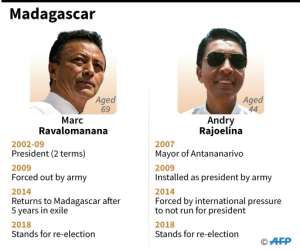 Profiles of Marc Ravalomanana and Andry Rajoelina, who have both declared victory in the Madagascar presidential run-off. By Paul DEFOSSEUX (AFP)
Profiles of Marc Ravalomanana and Andry Rajoelina, who have both declared victory in the Madagascar presidential run-off. By Paul DEFOSSEUX (AFP) Late on Wednesday, Rajoelina told his supporters: "I am sure I'm going to win but we'll wait for the official results."
Complete results are due by January 9.
The two candidates were both banned from running in the 2013 election as part of an agreement to end recurring crises that have rocked Madagascar since independence from France in 1960.
Ravalomanana, 69, was first elected president in 2002 but was forced to resign seven years later by violent demonstrations supported by Rajoelina, the then mayor of the capital Antananarivo.
Rajoelina, now 44, was installed by the army and ruled until 2014.
Both candidates have spent lavishly on campaigning, with promises and handouts distributed liberally to voters, who are among the poorest in Africa.
In the first round, Rajoelina won 39 percent compared with 35 percent for Ravalomanana.
With the personalities of the two men dominating the election, issues such as poverty, corruption and lack of basic services and infrastructure were largely pushed to the side.
'Huge interests at stake'
"I am worried because if the results are tight, no one has made a firm promise to respect them," said Hony Radaert, from the Citizens' Collective action group.
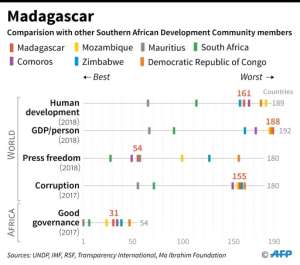 How Madagascar compares to other nations in the Southern African Development Community. By Cecilia SANCHEZ (AFP)
How Madagascar compares to other nations in the Southern African Development Community. By Cecilia SANCHEZ (AFP) "The two candidates and their entourages have huge interests at stake."
Ravalomanana is a former milkman from a peasant family who went on to build a business empire, while Rajoelina is a former party planner and successful entrepreneur with slick communication skills.
Madagascar is well known for its vanilla and precious redwood, yet is one of the world's poorest nations, according to World Bank data, with 76 percent of people living in extreme poverty.
The island, which is also famed for its unique wildlife, is dependent on foreign aid and burdened by a long history of coups and unrest.
Read Full Story
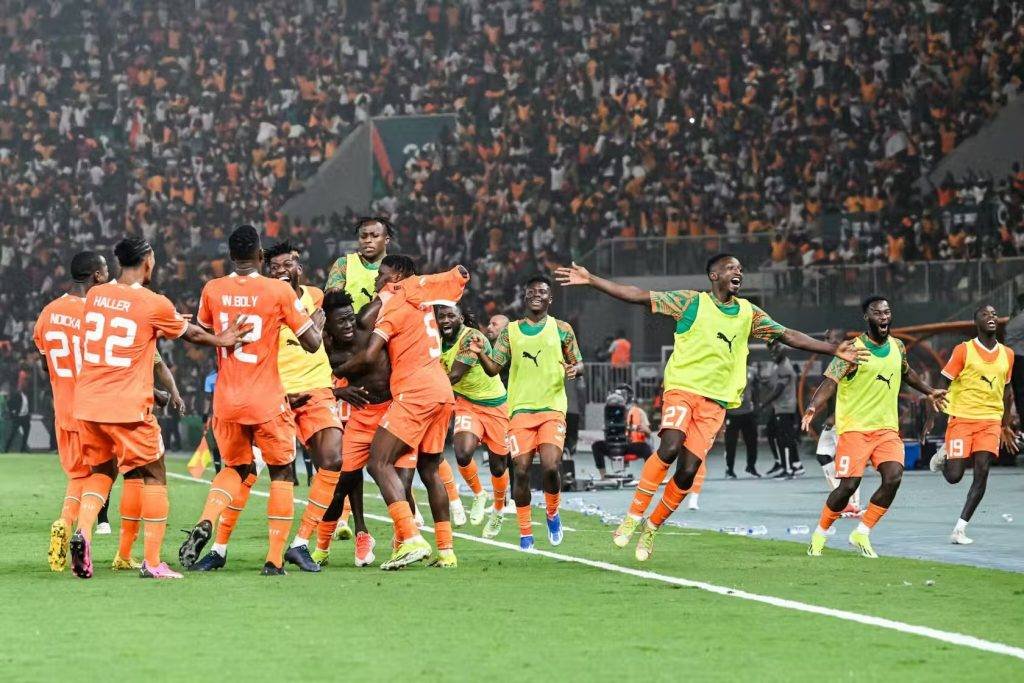








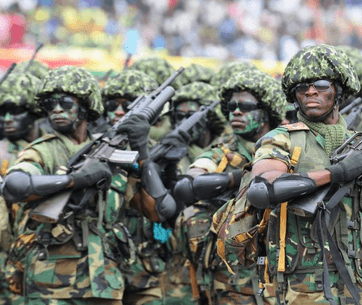
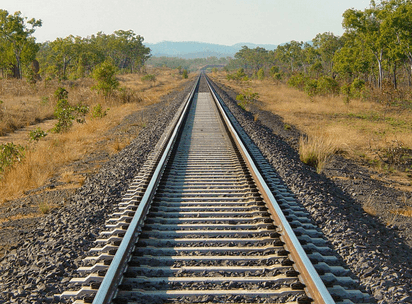

Facebook
Twitter
Pinterest
Instagram
Google+
YouTube
LinkedIn
RSS